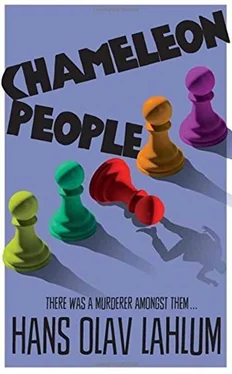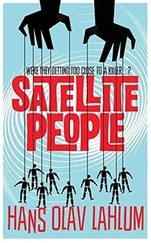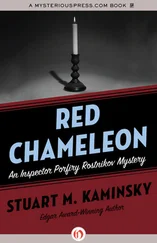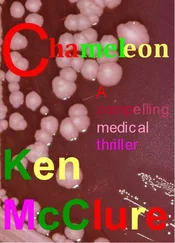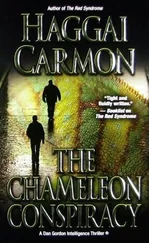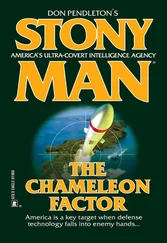I said that I would go alone, but asked her to ring the chief constable and tell him what had happened in the unlikely event that I did not come back.
In a tearful voice, she promised to do so.
It was a serious note on which to end the conversation. I said that I would call her later in the day. She replied that she sincerely hoped so, and that she was very fond of me.
It seemed clear to me, while talking to Miriam’s mother, that I should go to the National Theatre alone. But I must confess that it felt a little less clear a few minutes after she had put the phone down.
Two people had been killed in the past week. I had stood on my own with the bodies of two young people. Both experiences had made a considerable impression on me. And earlier in the week I had been followed by a man who ostensibly had killed several people. The thought that I might end up dead myself and that this might be my last day on earth was alarming.
But I could feel my adrenalin rising. This all fitted in with the telephone call to the halls of residence yesterday and the voice that had asked for Miriam. And the fact that it was a woman who rang and not a man felt less dangerous. I was now very curious as to who she was. I knew that I would not be able to live with myself if I did not go, and Miriam was later found dead or not found at all. The thought of living with that was worse even than the thought of dying today. Miriam had been injured for life during one of my previous murder investigations, and now apparently had been kidnapped in connection with this one. It was a responsibility that I could not and would not shirk.
I was never in any doubt that I should or would be there at half past eleven. But I was in doubt as to whether I should tell my boss before I went or not. If I did, I was not sure that he would let me go alone, and then I decided that I would not break my promise to Miriam’s mother in what was a desperate situation for her.
By half past ten I had come to the conclusion that I should not go to a meeting of this kind without first telling Patricia. It was unlikely that there would be any negative consequences if she knew, and the chances of getting Miriam back alive were far greater if Patricia could glean more from this than I could.
Patricia answered the telephone after one ring. The fact that she was obviously sitting there waiting triggered a burst of joy in all the darkness and confusion.
I told her in short what had happened and said that I had to go.
There was an unusually long silence. I could not remember Patricia ever having thought for so long when I had called her.
Eventually I said that it was interesting to note that there seemed to be a connection between Per Johan Fredriksen’s death and the kidnapping of Miriam.
Patricia answered swiftly: ‘That is, strictly speaking, only the case if the woman who rang is telling the truth, and is right. But yes, apart from that, it is very interesting.’
Then there was silence again.
‘I do understand, and of course agree, that you must go. But I do not like it one bit,’ she said eventually.
I felt a kindness in Patricia’s concern for me. Out loud I said that if someone wanted to kill me, this was hardly the way to go about it.
‘I don’t think that the perpetrators want to kill you, and I agree, I don’t think they would do it this way if they did. But I still do not like it because everything is so unclear. But there is no option. So good luck and be careful!’ Patricia said in a rush.
She did not put the telephone down straightaway. I had time to say that I really appreciated her concern and promised to be careful.
In a strange way it felt as though we both knew that if we were wrong, this might be the last time we spoke.
So I added two more sentences, apologizing for not having trusted her and thanking her for all the help she had given me in this case and previous investigations.
Patricia said she was sorry that she had not been able to help me enough in time to avoid this dangerous situation. I thought I heard a quiet sob when she said this.
Then we both put down the telephone at the same time.
It was now ten to eleven. I realized that it would be impossible to get anything done before half past eleven, and in any case I had no other leads to follow up. I could not bear just sitting here alone with nothing to do, so I decided to have some lunch before I went.
My lunch was not a grand affair. It consisted of a cup of coffee and two Danish pastries that I had bought from the bakers on the way in this morning. The pastries were softer than expected and my appetite really wasn’t there. It felt strange to be eating what could be my last meal in this way, on my own.
There was a knock at the door. I jumped up and opened it.
DI Danielsen was standing outside. He raised a hand in apology and said that he hoped he was not disturbing me. Unfortunately he had nothing new to tell me about the case. He just wanted to say that he was back on duty and would carry on working on the kidnapping case. He also hoped that everything was all right and expressed once more that the kidnapping of a policeman’s fiancée really was a desperate situation.
I thought to myself that Danielsen was possibly also someone who had several faces, and that only when it mattered did you get to see the nicer ones. I felt a twinge of guilt at not telling Danielsen about the tip-off I had just received in connection with the case he was investigating.
So I said that I had nothing new to tell either, but would be glad of his company. He came in and sat down. I offered him one of the pastries. We talked for about ten minutes about this and that – the investigation and life in general.
He said that Miriam’s mother had made a very personable impression and seemed to be a very nice future mother-in-law.
I said that I would indeed be a very fortunate husband, if only Miriam came back. Then I asked how his parents were keeping.
Danielsen looked rather surprised and very happy when I asked this. He said that his father would soon be eighty, and was slow on his feet, but that his mind was still up to speed. His mother was only seventy-six and still cheerful and in good form, despite having a spot of arthritis. They were both pleased and proud that he had achieved such a high rank at such a young age, but were constantly worried that his job might be dangerous. And they were a little too eager to have grandchildren, but you just had to put up with that.
I knew that Danielsen was an only child, so there was not much more to ask him about. I had a fairly clear picture, though, especially when I calculated that his parents must have been somewhat older when they had him.
Fortunately, in return, he asked how my parents were. I told him that they were in good health and that they too worried, from time to time, about the dangers inherent in my job, but that fortunately they also had another child and a grandchild to worry about most of the time.
We finished our short lunch at ten past eleven. I said that unfortunately I had to get on with the investigation and he was tactful enough not to ask where I was going.
When Danielsen had left, I got up and checked that my service gun was loaded and in its holster under my jacket. Then I left the station with quick steps and a pounding chest. It was only a quarter past eleven – and already my heart was hammering.
I got to the National Theatre at twenty-six minutes past eleven. It was fairly busy, as it was a Friday and the weather had improved. People hurried by in different directions, on their way to and from work, or to the tram or bus. I stood with my back to the National Theatre and looked down the main thoroughfare, Karl Johan Street.
Читать дальше
